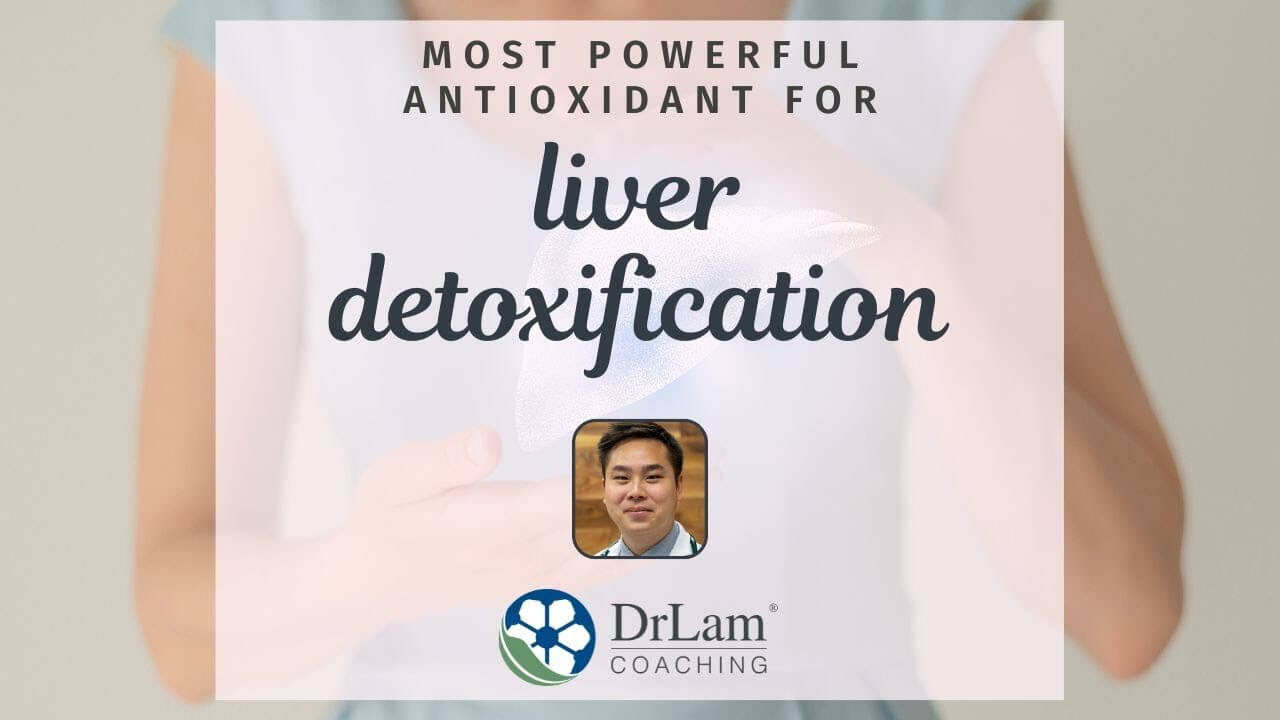
Not many people know about glutathione and how it works in their bodies. But this powerful antioxidant helps keep you healthy in a number of ways. Glutathione benefits affect not only many parts of your body, but also many health conditions as well.
A number of factors affect the level of glutathione in your body. For example, stress, toxins in the environment, and inadequate nutrition can all lead to lower levels of this antioxidant. In addition, glutathione decreases naturally as you age.
A powerful antioxidant present in every cell in your body, glutathione consists of three amino acids: glutamine, cysteine, and glycine. Made in your liver, unlike most antioxidants, glutathione affects multiple aspects of your health. For instance, it:
 Not many people know about glutathioneProponents of this supplement claim to have experienced a large number of benefits from taking glutathione. However, research into glutathione benefits remains scarce. Research does support the following benefits to some extent, though.
Not many people know about glutathioneProponents of this supplement claim to have experienced a large number of benefits from taking glutathione. However, research into glutathione benefits remains scarce. Research does support the following benefits to some extent, though.
Research does support the antioxidant activity of glutathione. It helps fight free radicals and the damage they can cause to your cells. This means it contains properties that can slow down the aging process and the progression of some health conditions. Oxidative stress can set the stage for multiple heath conditions. Glutathione helps reduce the impact of this kind of stress.
While much more research is needed, some scientists believe glutathione can slow the growth of cancer cells. However, it also makes tumors less sensitive to chemotherapy.
Several factors lead to damage to liver cells. For example, alcohol abuse, hepatitis, and fatty liver disease. Some research suggests one of the glutathione benefits is in helping to reduce liver damage. Through supporting detoxification and its antioxidant properties, glutathione seems to help deal with nonalcoholic fatty liver disease.
Research shows high doses of glutathione administered intravenously can effectively reduce a marker of cell damage in nonalcoholic liver disease. In addition, another small study indicated orally administered glutathione combined with lifestyle changes can bring positive results in nonalcoholic fatty liver disease.
 Research suggests people with insulin resistance tend to lack glutathione. Consequently, increasing levels of glutathione may increase insulin sensitivity.
Research suggests people with insulin resistance tend to lack glutathione. Consequently, increasing levels of glutathione may increase insulin sensitivity.
In addition, long-term high levels of blood glucose come with lowered levels of glutathione. As a result, oxidative stress and tissue damage can occur. Another of the glutathione benefits, as supported by research, involves lowering of oxidative stress and tissue damage in people with uncontrolled diabetes, regardless of blood glucose levels.
Through its antioxidant effects, glutathione may help decrease Parkinson’s symptoms like tremors or rigidity. Oxidative stress continues to be one of the strongest influencers in the development of conditions such as Parkinson’s disease.
In the same vein as many other illness conditions, oxidative stress and damage can lead to the development of ulcerative colitis. Research indicates supplementation with glutathione can reduce colon damage in rats.
Some evidence indicates children with autism spectrum disorder suffer from low levels of glutathione compared to peers without the disorder. Further research in this area may show one of the glutathione benefits to include a positive effect on autism spectrum disorder.
Some research showed sublingual glutathione to decrease vascular stiffness and reduce both total cholesterol and low-density lipoprotein (LDL) levels when used long-term.
Some research suggests orally administered whey protein, which also increases levels of glutathione, improves symptoms of psoriasis either with or without other therapies.
Research shows one of the glutathione benefits involves improving circulation in the legs of people with peripheral artery disease. As a result, these people were able to walk for longer distances without pain.
Chronic inflammation produced by autoimmune conditions leads to oxidative stress. But glutathione, through its support of the immune system, reduces this oxidative stress. In addition, another glutathione benefit consists of eliminating free radicals and protecting cell mitochondria attacked by autoimmune conditions.
Glutathione occurs naturally in a number of foods. Foods high in sulfur appear to increase the production of glutathione in your body. For example, some of these foods include:
Supplementation also may find a place in increasing levels of glutathione. However, research into this kind of supplementation remains lacking. Glutathione benefits from supplementation may come from an increase in L-cysteine when glutathione breaks down into its amino acids.
The lack of research also limits the setting of appropriate dosages for glutathione supplements. Possibly, an appropriate dosage may prove to rely on individual characteristics.
 Eating glutathione-rich foods will not bring any risk of side effects. However, supplementation may bring some side effects. These supplement side effects could include:
Eating glutathione-rich foods will not bring any risk of side effects. However, supplementation may bring some side effects. These supplement side effects could include:
In order for your body to function at its best, it must go through a process of detoxification. In the NeuroEndoMetabolic (NEM) stress response, your body’s natural way of fighting the effects of stress, six circuits comprised of three organs or systems each work in an inter-related fashion. One of those circuits handles detoxification. The liver, immune system, and interstitium make up this circuit.
Here, your body detoxifies itself from the toxins ingested daily and the metabolic by-products (called metabolites) that can build up in your body and become toxic. However, this circuit can become clogged, slowed down, or dysregulated, due to the sheer volume of toxins it has to deal with. As a result, your health deteriorates due to the effects of these toxins.
Glutathione’s antioxidant properties allow it to support your liver, strengthen your immune system, and free up your interstitium, helping detoxification and overall health.
This also helps symptoms of Adrenal Fatigue Syndrome (AFS). AFS occurs when your adrenal glands become overwhelmed in the face of chronic stress. They can no longer supply sufficient cortisol to fight the effects of stress, leading to poor detoxification among other symptoms. The amount of metabolites in your system increases, overwhelming the detoxification circuit. In this process, toxins become stored in fat cells where your liver can’t reach them.
This is where glutathione comes in. Another of the glutathione benefits comes from its ability to extract these toxins from fat cells in order for your liver to detoxify them.
In addition, another of the glutathione benefits involves strengthening other antioxidants. Through its action of taking care of toxins that otherwise would fall to other antioxidants, glutathione frees up these antioxidants to deal with other toxins. In other words, it effectively increases the number of antioxidants available to handle toxins in your body. This reduces the demand for your detoxification circuit.
Likewise, glutathione strengthens your liver. It reduces free radical damage to cells. Therefore, the load that your liver must handle becomes less, allowing it to work more efficiently. This also prevents your liver from becoming fatigued and damaged.
Glutathione is a powerful antioxidant that carries a wide variety of benefits. Those with diabetes, liver damage, detoxification issues, cancer, and autism are just a few of the groups that could benefit from getting more glutathione. Those with AFS could also use the glutathione benefits for detoxification and reducing oxidative stress.
If you are suffering from a lack of glutathione, here are a few things you can do:
Whatever course of action you decide to take, however, please do so with the guidance of your healthcare professional. He or she can help you assess a supplement’s benefits for you as well as an appropriate dosage.
If you would like to know more about or need assistance with glutathione benefits, the team at Dr. Lam Coaching can help. We offer a free** no-obligation phone consultation at +1 (626) 571-1234 where we will privately discuss your symptoms and various options. You can also send us a question through our Ask The Doctor system by clicking here.
Glutathione benefits are becoming more well-known daily. This antioxidant works to strengthen your liver, boost your immune system, and destroy free radicals that cause cell damage. Its antioxidant properties appear to bring multiple benefits to a number of chronic conditions. It can be boosted through increased ingestion of glutathione-rich foods such as broccoli and lean meat.
